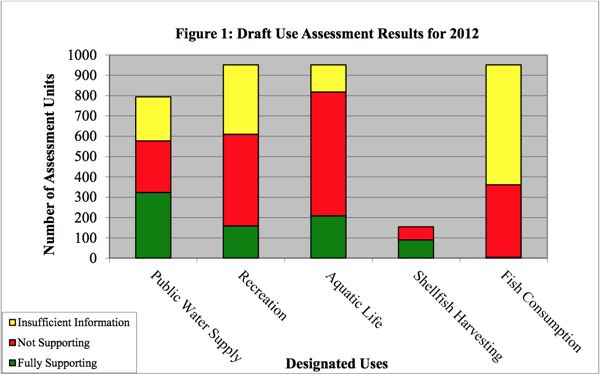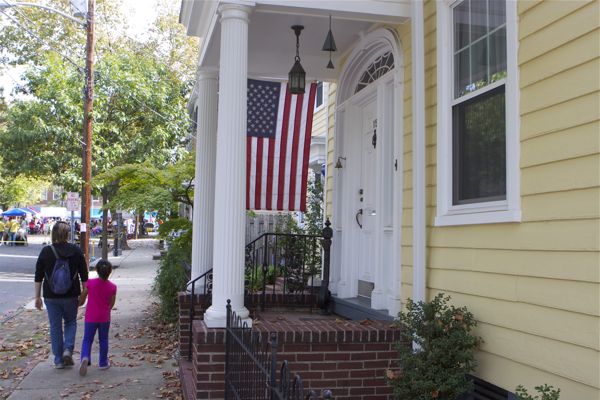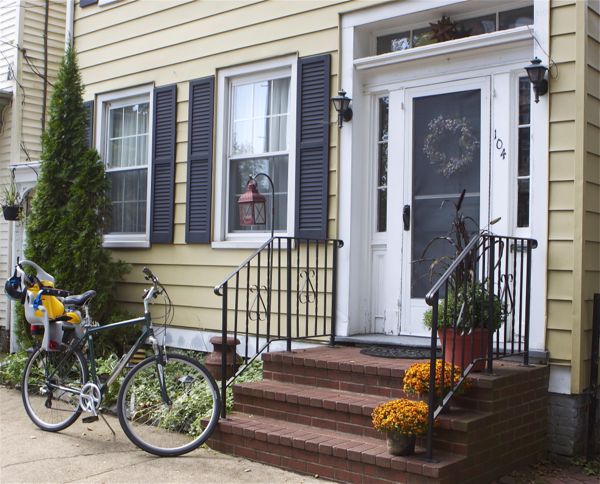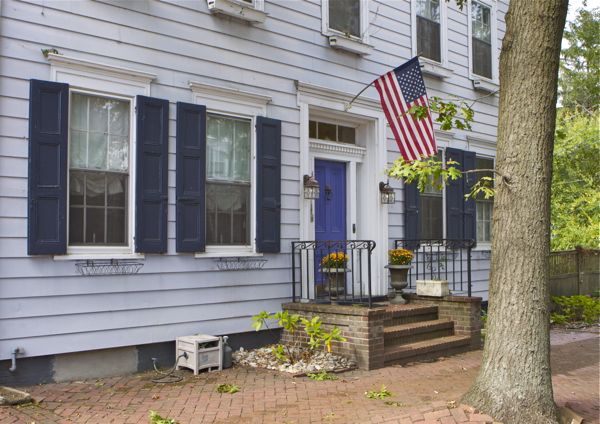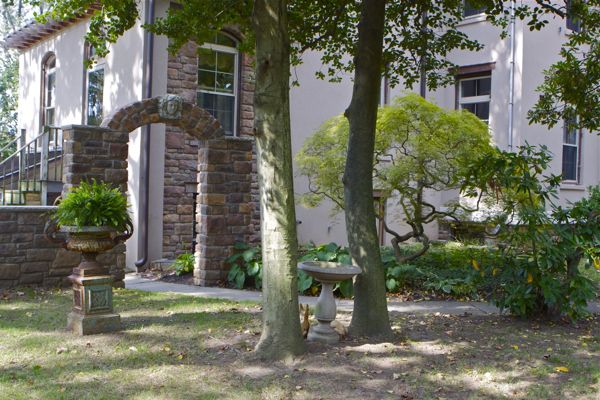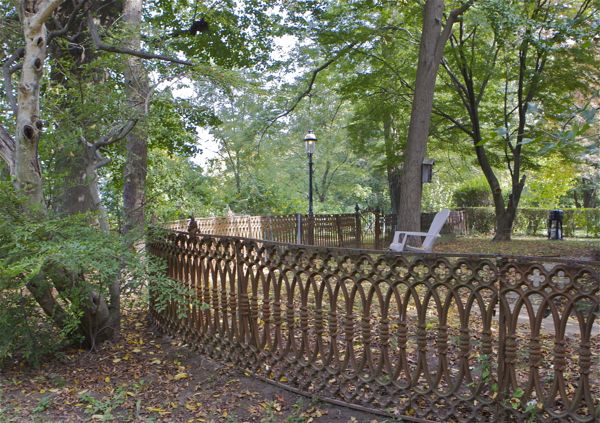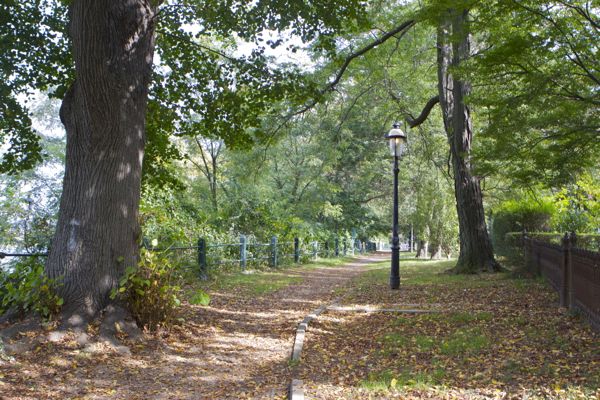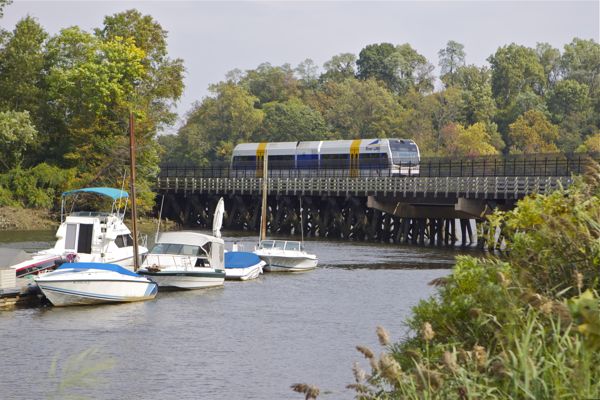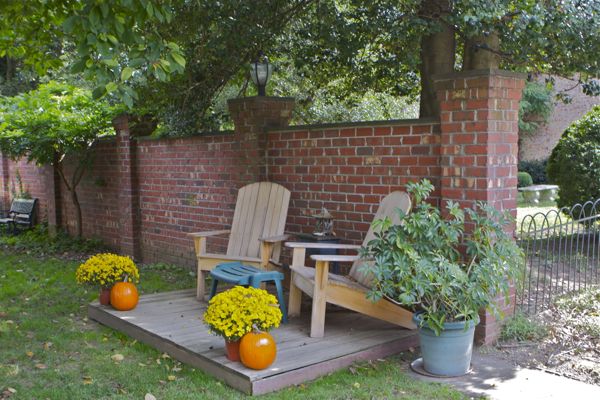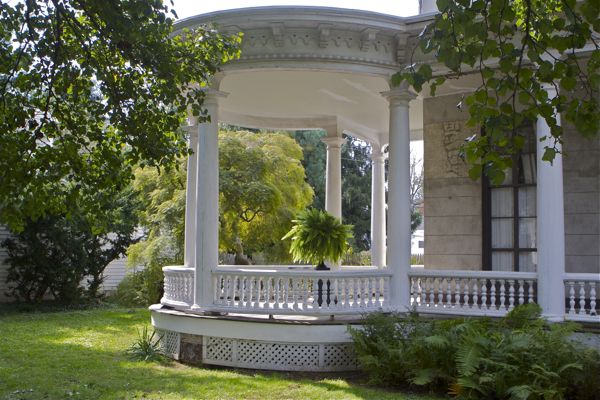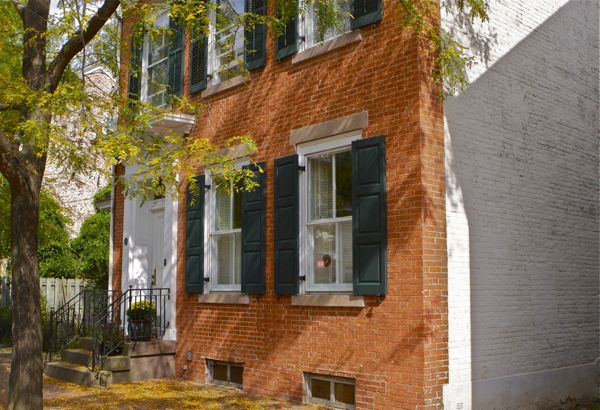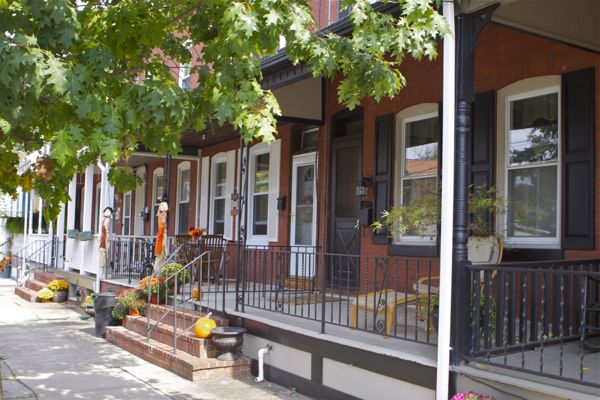Sustainable Slogans – Untenable Policy
DEP openly using enforcement resources to increase corporate profitability
“Sustainable Jersey is successful,” notes Donna Drewes, who co-directs the organization with Randall Solomon, “because it champions community-led decision-making and leadership, rather than mandating a top-down, one-size-fits-all plan for New Jersey.” [10/9/12 press release]
“The DEP will work with towns and cities to craft [voluntary] access plans that make local sense and protect the rights and needs of residents and businesses, instead of imposing one-size-fits-all, state-dictated access rules,” said DEP Commissioner Bob Martin. [Record]
“Cities and towns know best how to plan for their own needs,’’ said Commissioner Martin. “The DEP will ensure that certain standards are met, but local governments already are involved in land use planning _ both in creating master plans and adopting zoning regulations _ and they understand their communities better than regulatory agencies in Trenton.’’ [DEP Press Release]
““I’ve been clear from the very beginning that I do not believe a one-size-fits-all health care program works for the entire country and that each governor should have the ability to make decisions about what works best for their state. [Gov. Christie]
“Evolution is required teaching,” [Gov.] Christie said. “If there’s a certain school district that also wants to teach creationism, that’s not something we should decide.”
No State agency shall recommend, propose, publish or submit any regulation containing an unfunded mandate, as defined under New Jersey law (N.J. Stat. 52:13H-2), unless expressly authorized in writing by the Governor or the Lieutenant Governor. [Christie Executive Order #4]
Surely, Sustainable NJ and Donna Drewes understand political ideology and the role of loaded terms and slogans in advancing an ideological and policy agenda.
The series of quotes above is provided as an illustration of that.
(if you still don’t get it – let me offer an historic example:
What would be the obvious inference to be drawn from a statement by a white Southern governor, in 1955, championing State’s rights and the role of local Citizens’ Councils?)
Surely, it is obvious that there is a consistency between Sustainable NJ’s use of slogans (i.e. “mandating a top-down, one-size-fits-all plan for New Jersey” ) and the Christie Administration’s use of the same slogans to attack State government and regulations (i.e. “job killing red tape”) and to advance their ideological and policy agendas.
(Less loaded words are available. In contrast to Sustainable NJ’s slogans, for example, see this paper for a balanced assessment of the strengths and weaknesses of “bottom up” and “top down” methods, indicators, and approaches to sustainability.)
I don’t think the use of the same slogans is a coincidence – I think Sustainable NJ shares and is promoting the Christie Administration’s agenda. I think certain funders – like the Dodge Foundation – and various other corporate and State government “partners” wholeheartedly agree and share this agenda.
[You find some amazing stuff on DEP’s website – where Sustainable NJ listed as a “Business Association” and “Sustainable Business” contact, along with such environmental champions as NJ Business and Industry Assc., NJ Chamber of Commerce, and the Chemistry Council of NJ. As I indicated, this shows how Sustainable NJ is working in partnership with the Christie Administration.]
That agenda is NOT policy neutral – it has resulted in the dismantling or local delegation of the following key State DEP regulatory programs and the substitution of voluntary local “partnership” efforts for “one size fits all” “top down command and control” “job killing red tape”:
- global warming planning/mitigation
- climate change adaptation
- environmental justice
- Public Trust – guaranteeing public access to riparian lands
- watershed and water quality management planning
- Barnegat Bay – Clean Water Act TMDL Cleanup Plan
Unfortunately, there are a lot of right wing paranoid fanatics now opposing “sustainable development” as some kind of UN conspiracy against freedom and US sovereignty in favor of socialist world government control.
But, that does not mean that all criticism of the sustainability concept is driven by paranoid delusion or right wing ideology.
I have long been a critical skeptic of “sustainable development” – the vague concept has no workable definition or operational application within existing laws and governing institutions.
Lack of definition leaves the substance and application of the concept in the eye of the beholder (serving much the same function as Obama’s slogan “hope and change”). It tends to gloss over conflicts and contradictions, while diverting well meaning citizens from more effective forms of advocacy and government agencies like DEP from traditional regulatory roles.
Worse, there are scientific limits in the ability to quantify energy, materials, and economic stocks and flows and integrate all that with ecological dynamics across local, regional, national and global scales and systems boundaries.
Back in July, I tried to very briefly touch on some of the unintended consequences, practical flaws, and limitations of sustainability in prior posts (see: Christie Administration Outsources Climate Change Adaptation Planning
But I am now -in light of the context and recent NJ events – becoming an active opponent of how the sustainability concept is being applied in NJ governing circles.
For today, I’d like to briefly touch upon recent developments that have prompted my change from disengaged skeptic to active opponent.
First, I got no real engagement – or respect – from Randy Solomon of Sustainable NJ in regard to the challenge I laid down in prior posts. While Randy may have blown me off, I do know that he was aware of my critique and took steps to respond to my criticism.
Second, there is the above quote from a Sustainable NJ press release today, which, while again ignoring any State government responsibility, touts the addition of 24 more towns to the list of “certified” Sustainable towns (yet both BPU and DEP are mentioned as “partners”. That sounds like more political cover for the Christie Administration’s abdication of State government’s responsibility to me.)
I was particularly moved to laughter by this absurdity, which I suggest you file under “D” for “delusional”:
Camden was able to use Sustainable Jersey as a focal point to rally non-profit organizations to coordinate with the city and the local utilities authority to make progress on a number of fronts. “I am delighted that our efforts to Keep Camden Clean and Green have allowed the City of Camden to receive a Sustainable Jersey certification. As we continue to revitalize and move our City forward, my Administration will build upon our greening efforts to ensure our residents are able enjoy a quality of life that is second to none,” said Camden Mayor Dana L. Redd.
Camden is the poorest city in the Country, with arguably the worst quality of life in the US.
Third, going beyond merely using Sustainable NJ to mask State government abdication and/or local delegation, I recently learned that scarce DEP enforcement resources are being diverted from traditional compliance and enforcement functions to promote “corporate stewardship” and “sustainable business”.
(maybe that’s why DEP enforcement performance is at a record low, as reported by Todd bates of the Asbury Park Press:
proposed fines covering seven major DEP programs, including air and water quality and land use, plunged from $31.6 million in fiscal year 2007 to $9.1 million in fiscal 2011. That’s the lowest figure since at least 2002 and about half the 10-year average.
The collection of fines is down as well, dropping to $7.5 million in fiscal 2011, the lowest figure since 2006. Also, the number of enforcement inspectors has dropped by about 20 percent over the past five years, making it more difficult to catch polluters in the first place.
At the same time, the DEP has dramatically increased the number of settlements it has agreed to, allowing polluters to get off with relatively small fines. These settlements, the environmental equivalent of a plea bargain, allow violators to pay far less in fines, sometimes pennies on the dollars.
This “sustainable business” promotional effort is part of a broader Christie/Martin agenda to gut the traditional DEP enforcement paradigm and replace it with a voluntary, privatized, corporate model, where DEP provides compliance assistance and incentives (carrots) and retires the sticks.
Here ‘s DEP’s most recent “Stakeholder” meeting material – I can’t help but note the supreme irony that one of DEP’s goals for the program is “increasing the breadth and depth of participation”, which is belied by DEP’s practice of hand picked “by invitation only” “Stakeholders”. Obviously, the “participation” DEP is looking for is corporate business group participation, not citizen or public participation.
And note the topic and DEP agenda for the upcoming meeting:
Creating Sustainable Businesses in New Jersey
October 16, 2012, 1:00 – 3:30
NJDEP Headquarters, 401 E. State St., Trenton, NJ Public Hearing Room – 1st Floor
Goals for this Initiative:
- Promote sustainability planning and practices among New Jersey businesses to enhance economic success, environmental protection, and an improved quality of life.
- Identify and share resources to educate and encourage the New Jersey business community on SROI (sustainable return on investment).
So, DEP is now openly and actively working to increase corporate profitability (i.e. “SROI”) – and, perhaps worse, using scarce enforcement program resources, of all things, to promote that private sector objective.
Groups like Sustainable NJ provide cover and legitimize these rollback efforts, which clearly advance private economic interests above the public interest and protection of public health and the environment, under the guise of motherhood and apple pie (i.e. “sustainable development”).

